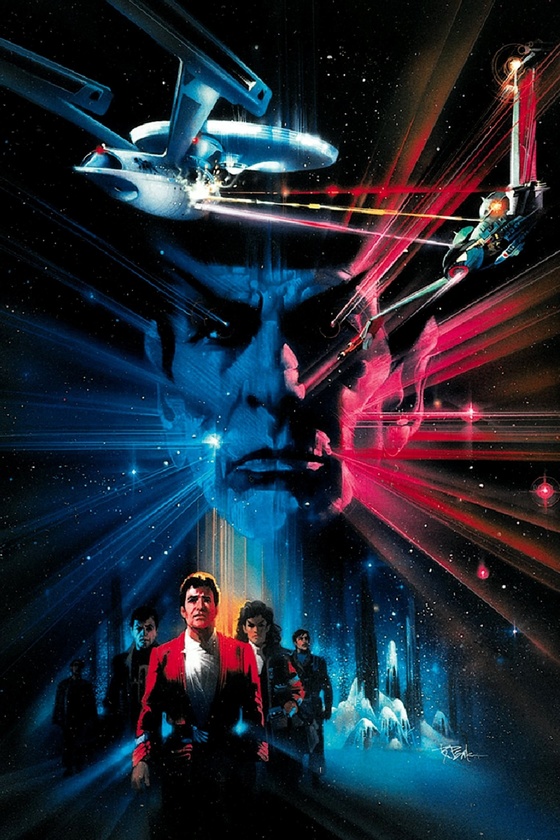After finishing The Wrath of Khan, I wanted more Star Trek and there was only one to do: I had to watch The Search for Spock right away. I realized that the two films had merged in my memory, which led to some confusion, but confirms that they are a complete set. The followup has all the wonder and dignity of its predecessor, though it lacks something of the spark that makes The Wrath of Khan an enduring classic.
The Search for Spock picks up immediately after the events of the last film.
Looking at the two movies (made two years apart) back-to-back, one can’t help but notice the film stock and actors have changed (not just aged, but literally in one case actually changed). But it’s not difficult to suspend disbelief and set it aside for the actors who are giving it their all. At the end of Khan Spock makes the ultimate sacrifice, and his casket is launched into space. The rest of the crew sets about moving on with their duties, and Kirk’s son David continues his mother’s work researching the new Genesis planet that Khan inadvertently created.
And there’s someone or something on the planet.
Unbeknownst to them, a Klingon battle cruiser lurks nearby. Their leader, Kruge (a bombastic Christopher Lloyd), wants the tech that created Genesis, which he sees as a potential weapon. As evil always does, he wants to use that which was designed to create life and twist it for a power that ultimately leads to death. When David and Saavik go to the planet’s surface to investigate the lifesign Kruge takes them hostage.
Meanwhile, back at the ranch, Bones is having problems of his own.
We know what’s happening, but everyone else is a little slow to catch on. Before Spock went into the chamber that killed him he performed a Vulcan mind meld on Bones, putting his consciousness in the old doctor’s head. The result is a split personality and Bones feels a compulsion to go to Genesis, which the Federation has declared off-limits. He ends up locked in the loony bin, and Kirk (finally putting everything together) decides to break him out, steal the Enterprise, and make a run to Genesis to see if Spock is still alive.
It’s a heist movie.
Unfortunately, the process of evolution is accelerated on Genesis and rapidly moving toward total apocalyptic failure. As long as the reborn Spock is on the planet his body is growing and suffering with it. We’ve got an established goal and a ticking clock, just like a good story should. We’ve got moments of humor, tension, grief, sex, action, and pauses to breathe. Just like a good story should. The only real flaw is that Kruge isn’t a great villain.
They do their best to make it personal, but Kruge is no Khan.
Where the story shines is in the interpersonal relationships between the established characters. How far are they willing to go for a friend? Spock laid down his life for his friends, and now they are willing to lay down their careers and reputations for his. It’s easy to get bogged down in the Christian imagery here, but it’s a mythic and therefore resonant story that humans have always known and loved.
I won’t explore the other idea: that rushing science leads to bad outcomes. You can do that yourself.
Don’t let anyone tell you that only the even numbered Treks are any good. Nimoy said he wanted an operatic story, and that’s exactly what he gave us. As the film reached its conclusion I was both satisfied and longing for more. More epic stories, rooted in myth, with great characters in wonderful, strange new worlds.

























